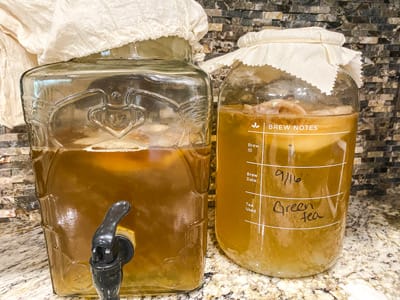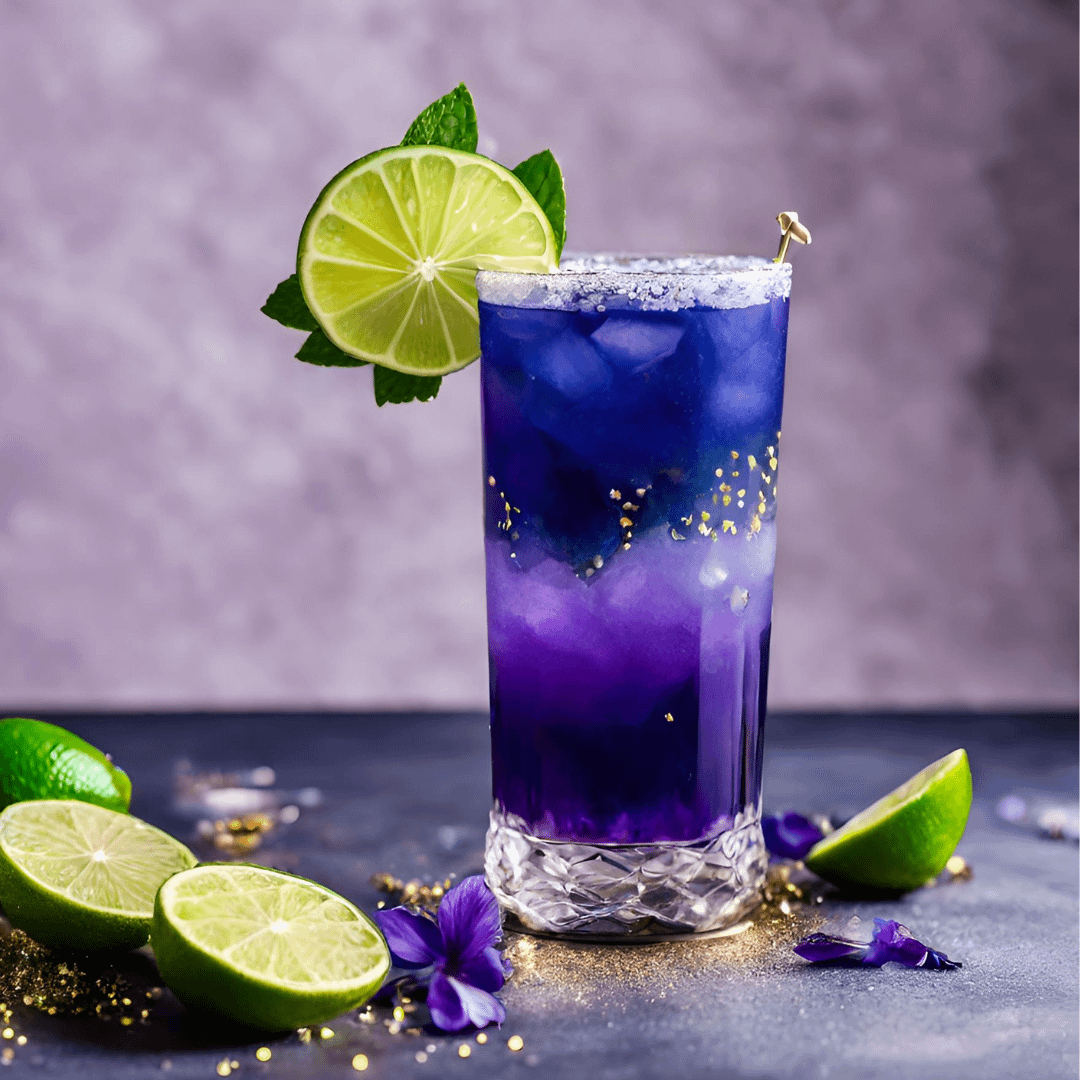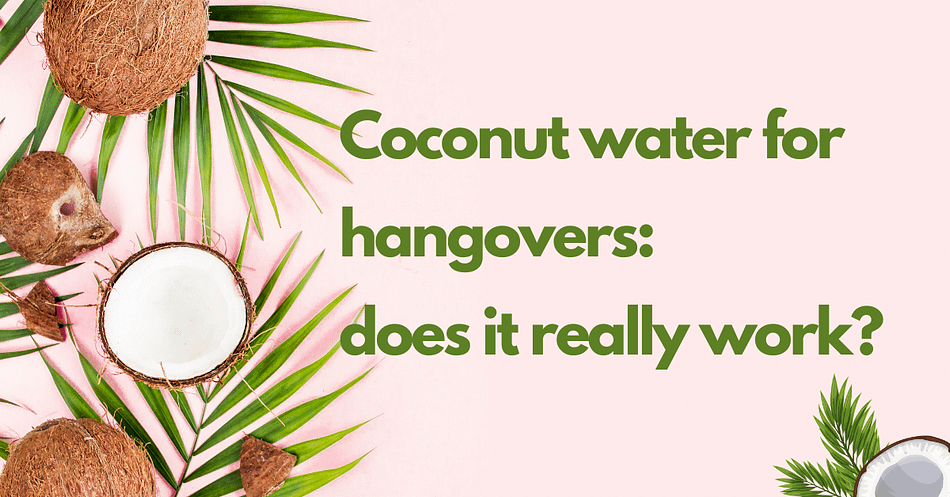Share This

Pages on this site may contain affiliate links, meaning if you book or buy something, I may earn an affiliate commission at no additional cost to you. Thank you for your support! Learn More
Also note: While I am a certified nutrition coach, I am not a medical doctor. Information here is not intended to be a replacement for the advice you should seek from your doctor.
If you read my other article, Benefits of Kombucha, you may recall how I explained several high-level benefits of drinking kombucha. That article explains how kombucha has probiotics that can repair your gut as well as other benefits. You should read it! It really is important to understand if you are unfamiliar with what is in kombucha and how it can help your health.
Here I will go into detail about how kombucha could possibly help with several health conditions. However, first I would like to give you a little context into the many ways you may be harming your gut today. Note, I am not a doctor so if you are having any medical issues, see a doctor. I am just a nerd obsessed with nutrition scouring credible sources for answers, hoping to find information that will revolutionize your health. 😉
What causes damage to the stomach lining?


Several factors can damage the lining in your gut, a few of which are:
Taking too many antibiotics which can strip away good bacteria.
Experiencing high stress and consuming certain foods that feed “bad” bacteria common in the Western diet such as – diet soda, saturated fats, and red meat (1)
Having a fiber deficiency in your diet in the form of prebiotic carbohydrates such as fruits, vegetables, nuts, seeds, and grains. This fiber feeds the “good” microbes in your gut.
Inflammation caused by contracting an infection (as a result of pathogens) causes destabilization of your gut microbiota community (9).
Smoking tobacco and consuming alcohol are known to impact the gut.
Not getting enough sleep (10).


Kombucha Can Help with Health Conditions
With a favorable gut flora balance, the potential for your body to combat different diseases and other health issues increases. This favorable balance facilitates you being an all around healthier person. 😄
Kombucha for IBS
The probiotic strain S. boulardii in kombucha helps treat an array of different bowel disorders, including reducing the symptoms of IBS. Four to six ounces with a meal is recommended, starting with a partial serving. “A full serving of kombucha might not be suitable for those who do not tolerate fructans.” (2) Try a little kombucha, and if your body doesn’t agree with it, try other fermented foods such as kefir, kimchi, tempeh, miso, sauerkraut, or yogurt.
❤️❤️ Don’t miss a recipe or post! Make sure you remember to sign up for my Newsletter and follow me on social ❤️❤️!
Get Your Free Stuff!
Is FODMAP a fix?
The FODMAP diet was created to help alleviate symptoms of IBS, but it only alleviates the symptoms and doesn’t treat the source. This diet avoids some foods that are otherwise beneficial to your diet and could have detrimental effects if followed in the long-term. If destroyed or diminished, your gut needs to rebuild that diversity to thrive again, so it is beneficial to add probiotic-rich cultured rich foods (such as kombucha) while taking caution in consuming those that are high on the FODMAP. While healing the gut, high FODMAP foods should be reintroduced slowly.
Kombucha for Weight Loss
Is kombucha effective for weight loss? Evidence is emerging suggesting that obesity related disorders are characterized by an altered gut microbiome. This raises the possibility that changing gut microbiota could facilitate weight loss. (2)
Not all types are proven to aid in weight loss but one study found that a catechin found in green tea may boost your metabolism. So while more research is required to say for sure, kombucha made with green tea should boost your metabolism, facilitating weight loss. Though it is by no means a miracle weight loss drink. (3)
However, kombucha is light in calories, so it is a great alternative to sodas or juices. Also, there are some animal studies that lead us to believe that tea can encourage a calorie reduced diet. (4) How can you drink kombucha for weight loss? A good first step would be to stop drinking drinks like soda and replace it with water and kombucha.
Kombucha for Candida
Does kombucha help with candida? The consensus on the issue ranges from suggesting avoidance of fermented foods when dealing with a candida-related health issue (ex: yeast infection) to promoting it as a positive contribution to a favorable gut balance and providing the microbial benefits of green tea. One source states “If we build up the good yeasts and bacteria, they will solve the problem for us and also create a balance that otherwise wouldn’t exist within our bodies. Killing bacteria kills both the good and the bad, and the same with Candida – you want a small amount to remain but you really are looking for balance, not complete extinction”. (5)
“If we build up the good yeasts and bacteria, they will solve the problem for us and also create a balance that otherwise wouldn’t exist within our bodies…”
Cultured Food Life
In an article there it describes a study performed that was aimed to compare the antimicrobial effects of green and black teas fermented for a few weeks. The results showed antimicrobial potential from both teas for most Candida strains. However, the green tea exhibited the most antimicrobial potential, with anti-candida potential revealed by it’s reaction against Candida parapsilosis. (6)
Kombucha for Mental Health
Can kombucha improve your mental health? The apparent relationship between gut health and mental health is a new topic of interest. Recent studies focused on communication between the brain and gut have received a lot of attention. The studies demonstrate that mental disorders including depression and anxiety are often observed alongside gut problems, suggesting a bidirectional relationship between mental health and gut function. (5) Furthermore, a report states that administration of probiotics causes behavior that suggests an antidepressant effect. Probiotic rich diets showed positive effects on stress relief and memory enhancement. (11) With the data, we can intelligently hypothesize that probiotics enhanced gut health which resulted in a better mental state.
Kombucha for Acne
Can kombucha cure your acne? There is evidence and ongoing research to support the gut-brain-skin theory, which suggests an intricate relationship between your gut microbiome, your brain, and your skin. Depression and anxiety are known to cause acne and alter normal intestinal microbiota. In turn, beneficial gut microbes and oral probiotics could be linked to skin health, and particularly acne severity, “by their ability to influence systemic inflammation, oxidative stress, glycaemic control, tissue lipid content, and even mood”(13). This suggests that skin may be influenced by diet, which is still a controversial topic, however is a topic of ongoing research.
Several studies established that drinking Lactobacillus-fermented beverages proved beneficial to the improvement of acne. One of which states that an “investigation of 56 acne patients established that
consumption of a Lactobacillus-fermented dairy beverage
improved the clinical grade of acne over 12 weeks”(13). The former studies had results from the probiotic alone, therefore leading me to assume that whether the fermented beverage is dairy or not is less relevant. I’ve seen a massive improvement in my acne since I switched to a more plant-based diet, but I’ll save that for another article! Bottom line is, Lactobacillus supplements and Lactobacillus-fermented beverages combat acne. Lactobacillus is found in small amounts in kombucha, but often varies. Making kombucha yourself gives you the control to retain the kombucha brew’s resulting beneficial live microbes, however kombucha won’t be the magical bullet that cures your acne; Diversity of beneficial bacteria sources, consuming other fermented foods such as kimchi, and adopting a fiber rich diet is paramount.
Kombucha for Colds
Can kombucha cure a cold? One study on about 500 healthy adults, concluded that probiotic Lactobacillus acidophilus and Bifidobacterium animalis intake significantly shortened the duration of a cold infection by almost two days and reduced severity of symptoms but did not decrease incidences of contracting a cold (15).
A study on children concluded that daily probiotic supplementation for six months containing the same strains of probiotics was a safe and effective way to reduce several symptoms associated with colds and fevers, as well as reduce the need for antibiotics. The supplementation also resulted in less missed school days attributed to illness for the children in the study – all of which were 3 to 5 years of age (14).
Lactobacillus acidophilus can be found in kombucha in various amounts. However Bifidobacterium animalis is most commonly found in fermented dairy products and not kombucha. Therefore, Kombucha can help but having a diverse intake of fermented foods and plant-based fiber is key to ensuring the best attainable gut health to alleviate colds.
Kombucha for Acid Reflux
Is kombucha good for acid reflux? A study published in an article noted several studies that showed probiotics were beneficial to GERD symptoms, especially regurgitation and heartburn symptoms. While promising, a study with sufficient number of participants and a control are warranted to confirm this (16).
However, caffeine and carbonated drinks are known to exacerbate acid reflux. In spite of this, one source claims that it is beneficial for acid reflux (17). My gut (haha, punny) with this information has me thinking it should be safe to give kombucha a try. Start with a few ounces first and see what happens. If the caffeine and carbonation in kombucha make your symptoms worse, try something else that has live cultures such as coconut yogurt.
You Should Try Making Kombucha – Brew Along With Me!
You don’t have a whole lot of control over how kombucha is made, and sometimes it is pasteurized, killing potential live microbes in the process. I hope this article was informative, and I hope you consider making it on your own so you can receive its full benefits. Get a kit that includes everything including the SCOBY! I sell them in my store, linked to the right. Also stay tuned for more articles about kombucha, as well as kombucha recipes coming soon. 😄
Please sign up for my email list to receive the new related articles in this Kombucha series as well as my new recipes.
You have little control over the brewing process and cost when you buy it from the store. Try brewing it at home instead!
Please let me know how your brew goes if you brew kombucha! Post a picture and tag one of the below social media accounts:
1. Fermented foods, the gut and mental health: a mechanistic overview with implications for depression and anxiety – Nutritional Neuroscience
2. The Gut Microbiome and Its Role in Obesity – Nutr Today
3. 10 Potential Benefits of Kombucha – Everydayhealth
4. 17 Things You Need to Know About Kombucha – Eat This, Not That!
5. Candida and Cultured Foods – Cultured Food Life
6. Antibacterial and Antifungal Activities of Black and Green Kombucha Teas – Journal of Food Biochemistry
7. Rockwood, Kate. The Best (and Worst) Foods for Your Gut – Rally Health
8. Fermented Foods and IBS – Cultured Food Life
9. Factors That Influence Gut Microbiota – The Gut Microbiome and Beyond
10. What’s an Unhealthy Gut? How Gut Health Affects You – Healthline
11. A Review of Fermented Foods with Beneficial Effects on Brain and Cognitive Function – Preventative Nutrition and Food Science
13. Acne vulgaris, probiotics and the gut-brain-skin axis: from anecdote to translational medicine – Beneficial Microbes
14. Probiotic Effects on Cold and Influenza-Like Symptom Incidence and Duration in Children – Journal of the American Academy of Pediatrics
15. Probiotic bacteria reduced duration and severity but not the incidence of common cold episodes in a double blind, randomized, controlled trial – Vaccine Journal
16. Gastroesophageal Reflux Disease and Probiotics: A Systematic Review – Nutrients Journal
17. 8 Things You Didn’t Know About Kombucha – Food Republic












